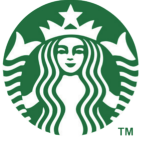The Bottom Line: Mill Steel Corp, Albany International and HPM Insurance
A roundup of news updates from public companies in NH and nationwide

The Federal Aviation Administration (FAA) announced late September that it will allow Boeing to resume issuing airworthiness certificates for some of its 737 Max and 787 Dreamliner aircraft — a key step toward restoring the company’s autonomy after years of regulatory scrutiny.
The FAA revoked Boeing’s ability to self-certify 737 Max jets in 2019 following two deadly crashes, and later extended similar oversight to the 787 in 2022 due to production issues. Since then, the FAA has handled all certifications directly.
Under the new arrangement, Boeing and the FAA will alternate weeks in issuing airworthiness certificates, which deem aircraft safe for delivery.
“Safety drives everything we do,” the FAA said in a statement, adding that the move follows a thorough review of Boeing’s quality improvements. “This step allows our inspectors to focus additional surveillance in the production process.”
The decision signals growing regulator confidence in Boeing’s manufacturing progress, though scrutiny remains high. A door panel blowout on a 737 Max 9 in early 2024 prompted the FAA to cap Max production and intensify oversight.
Boeing CEO Kelly Ortberg, who took over in 2024, has aimed to stabilize Max production at 38 planes per month and is eyeing a potential increase. Any request to ramp up output will require detailed FAA review.
Boeing shares rose about 4% on the same day of the news.
The U.S. economy expanded at a robust 3.8% annual rate in the second quarter of 2025, the Commerce Department reported last month, significantly revising up its previous estimate of 3.3%. The stronger-than-expected growth was driven largely by a sharp increase in consumer spending and a steep drop in imports.
Gross domestic product (GDP) rebounded after a 0.6% contraction in the first quarter, which had marked the first economic decline in three years, largely due to a spike in imports ahead of President Donald Trump’s tariffs. In Q2, imports plunged 29.3%, adding over five percentage points to overall growth.
Consumer spending — which accounts for about two-thirds of U.S. economic activity — rose at a 2.5% pace, far above the 1.6% originally reported. Spending on services more than doubled initial estimates, growing at a 2.6% annual rate.
“The U.S. consumer remained a lot stronger than many thought,” said Heather Long, chief economist at Navy Federal Credit Union.
However, not all indicators were positive. Business investment declined, with residential investment falling 5.1%. Private inventory reductions shaved more than 3.4 percentage points off growth. Federal spending also fell for a second straight quarter, down 5.3%.
Job growth has slowed sharply in 2025, averaging just 53,000 new jobs per month. Forecasters expect September’s employment report, due Oct. 3, to show only 43,000 jobs added.
 Starbucks announced a $1 billion restructuring plan on Sept. 25, which includes the closure of around 500 North American stores and the layoff of approximately 900 non-retail employees.
Starbucks announced a $1 billion restructuring plan on Sept. 25, which includes the closure of around 500 North American stores and the layoff of approximately 900 non-retail employees.
The move is part of the company’s ongoing “Back to Starbucks” transformation under CEO Brian Niccol, aimed at revitalizing the brand amid declining sales. In an SEC filing, Starbucks said its company-operated store count in North America will shrink by about 1% in fiscal 2025, with growth resuming in 2026.
Around 90% of the restructuring costs (about $900 million) will be concentrated in North America, including $150 million for employee severance and $850 million in store-related charges.
The company cited the need to refocus investment “closer to the coffeehouse and the customer” as it responds to falling same-store sales, which have declined for six straight quarters.
This marks the second round of layoffs this year under Niccol, who previously cut 1,100 corporate roles. Starbucks currently has around 16,000 non-store employees.
Baristas at affected locations will be offered transfers or severance. Starbucks Workers United, which represents over 12,000 baristas across 650 unionized stores, said it plans to engage in bargaining over the closures.
Starbucks shares dipped less than 1% following the announcement and are down more than 8% year-to-date.